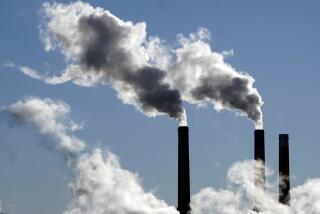No to the Keystone XL pipeline
When you have a job, it’s hard to remember what life is like without one. There are the obvious troubles that come with lack of income, of course, but there’s also a kind of deep uncertainty, the sense that you might never find work again. In a country with a threadbare safety net, that sense is doubly hard to shake. Which is why the promise of jobs is so politically powerful, and why it’s so abhorrent when the promise of job creation is used as a cynical trick for the powerful to get what they want.
We’ve been working these past months to block the proposed Keystone XL pipeline from the tar sands of Alberta, Canada, to the Gulf of Mexico. We’ve won the debate on scientific grounds: 20 of the nation’s most eminent researchers have explained in a letter why it would be monumental folly to speed the process of tapping that giant pool of carbon. It’s also become clear that the pipeline would do little to enhance energy security because much of its cargo would be destined for export. And as a series of disastrous leaks in similar pipelines have amply demonstrated, the risk of running this one across the Ogallala Aquifer, a vast underground water table that underlies parts of eight states, is absurdly high.
Add to all this the fact that one of the world’s foremost climatologists has said flatly that burning the tar sands would mean “it’s essentially game over for the climate,” and it’s hard to see how any sane person would even think about proceeding.
So how do the pipeline’s advocates argue for building it? Certainly not by stating their main motivation: “It’s going to make us a fortune.” Instead, they chant the mantra of jobs.
Take Tom Donahue, for instance, who heads the U.S. Chamber of Commerce. The chamber was the biggest donor in the last election cycle, and now it has made the pipeline one of its priorities. Every time Donahue gives a speech, he makes the claim that it will produce 250,000 jobs, which is more than the entire economy is producing most months.
That claim is utter nonsense. The number comes from a study prepared by analysts hired by the pipeline company. In fact, the actual study predicts 119,000 jobs — apparently the larger figure comes from extending its impact out over the entire century (which is odd, because the pipeline itself is only supposed to last 50 years). But even the smaller number is absurd: The analysis, just for example, estimates that a seventh of the project’s impact will come from building new pipeline through Kansas, but in fact that stretch of the line already exists and is in operation.
Cornell University’s Global Labor Institute took a more realistic look at the numbers in a report published last week. Building a pipeline 1,700 miles across the center of the continent obviously will take workers; the best estimate of the State Department is that it will produce 2,500 to 4,650 on-site construction jobs, almost all of them non-local and temporary. Many of these jobs would pay decent wages, and in the current slump, 2,500 to 4,650 jobs is nothing to sneer at. But it’s a far cry from 250,000 jobs.
Also, if you look more closely at the numbers, you see another story emerging. Economists have demonstrated that the pipeline, by offering new markets for the tar sands oil, is likely to substantially raise the price of gasoline in the Midwest, an effect that may be large enough to kill more jobs than the pipeline creates. It could also delay for more years the job-rich transition to green power sources. That’s one reason transport unions in the U.S. oppose the pipeline: They understand that more oil dependency is bad for efforts to scale up much needed low-carbon public mass-transit systems.
The jobs crisis is not an excuse for bad policy; instead, it’s precisely the reason why we need careful thinking about how to move our country forward in a way that makes sense — a way that generates good jobs for years to come. Whether 2,500 temporary jobs are reason enough to dramatically damage the climate and run the huge environmental risks of a pipeline across the continent is a call that the president has to make, and President Obama has said he’ll make a decision by year’s end.
But when he does, he should make sure he understands that the Chamber of Commerce and its roster of huge oil companies are no more interested in jobs now than they were when they pushed new laws to facilitate American work moving out of the country. They’re cynics, hiding their vested interest behind a sham promise of a jobs bonanza that simply isn’t there. Obama shouldn’t hide behind the same smoke screen.
Sean Sweeney is director of the Cornell Global Labor Institute. Bill McKibben is a scholar in residence at Middlebury College and an organizer with tarsandsaction.org
More to Read
A cure for the common opinion
Get thought-provoking perspectives with our weekly newsletter.
You may occasionally receive promotional content from the Los Angeles Times.






